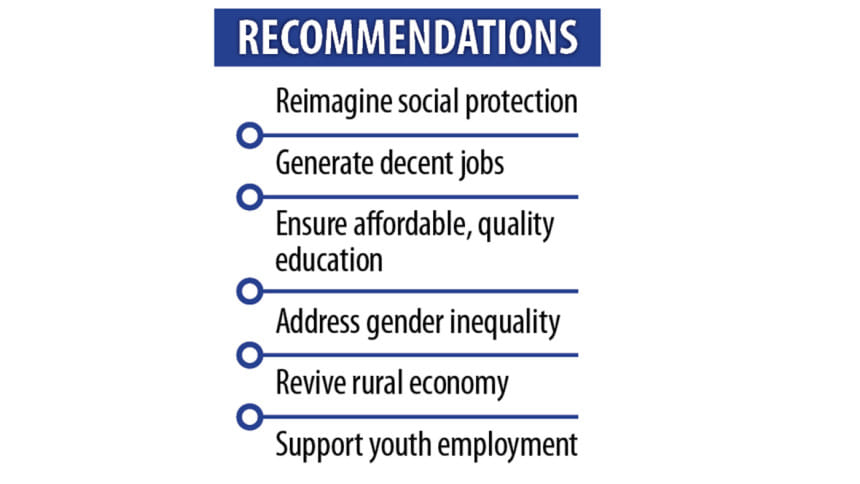Originally posted in The Daily Star on 14 September 2025
Jobless growth, gender gaps fuel poverty rise
Speakers tell PPRC discussion, urge for coordinated reforms to address the issues

The interim government must take urgent and decisive steps to address the country’s worsening employment crisis, declining educational outcomes, and persistent gender inequalities, said speakers at an event yesterday.
Without bold, coordinated reforms in these critical areas, they warned, the risk of entrenched and widespread poverty will continue to grow, undermining Bangladesh’s long-term development trajectory.
The event, styled “Ajker Agenda: What is Driving the Poverty Reversal in Bangladesh?”, was organised online by the Power and Participation Research Centre (PPRC).

Imran Matin, executive director of the BRAC Institute of Governance and Development, said the reversal in poverty trends is not an isolated event but reflects both the impact of overlapping shocks and a deeper structural fragility in Bangladesh’s poverty reduction model.
“For too long, progress has been concentrated around lifting people just above the poverty line, without securing a sustained escape from poverty. This has created a vulnerable population that is highly susceptible to crises,” he said.
“We now face a twin challenge: a sharp rise in vulnerability-induced transitory poverty, and a worrying uptick in extreme or chronic poverty. Addressing this dual crisis demands a differentiated and targeted policy response.”
“Current systems are outdated, fragmented, and misaligned with today’s realities. We need a new generation of social protection that is care-responsive, shock-resilient, and programme-specific. This calls for a large-scale, disaggregated survey to inform smarter, more inclusive interventions.”
A recent PPRC study shows that poverty in Bangladesh has surged over the past three years, with nearly 28 percent of the population now poor compared to 18.7 percent in 2022.
The share of people living in extreme poverty has also risen to 9.35 percent this year, up from 5.6 percent three years ago. This means one in every four people now lives below the poverty line, while one in every 10 is trapped in extreme poverty.
Another 18 percent are in the “vulnerable non-poor” group, at risk of falling into poverty anytime.
Selim Raihan, professor in the Department of Economics at Dhaka University and executive director at the South Asian Network on Economic Modeling, said despite periods of high GDP growth, Bangladesh has failed to generate enough decent jobs to lift people out of poverty.
“The ‘jobless growth’ phenomenon is real, and it’s exacerbated by rising inequality. International evidence confirms that in countries with growing inequality, poverty reduction becomes much slower and more difficult,” he said.
Access to quality education is another major concern, he noted. With 70 percent of education costs covered by households, many poor families cannot afford meaningful access to quality education.
This limits their children’s job prospects and perpetuates intergenerational poverty, he added.
MA Sattar Mandal, emeritus professor and former vice-chancellor of Bangladesh Agricultural University, said the recent rise in rural poverty reflects deep structural challenges within the rural economy.
“First, we are witnessing a sustained decline in agricultural growth. Second, the real wages of agricultural labourers have eroded. Third, there has been a contraction in rural non-farm income, which typically accounts for around 60 percent of household earnings,” he said.
“Taken together, these trends help explain why rural poverty is rising more sharply than urban poverty. Addressing this reversal will require urgent policy focus on improving agricultural productivity, protecting real wages, expanding rural employment, and increasing capital flow into the non-farm economy.”
Fahmida Khatun, executive director at the Centre for Policy Dialogue, said jobless growth, stagnant investment, and flawed employment metrics are worsening poverty in Bangladesh.
She also identified climate change as an emerging threat. With over 40 percent of youth classified as NEET — Not in Employment, Education, or Training — she stressed that meaningful employment generation must be central to reversing the current poverty trend.
Eminent economist Prof Rehman Sobhan was also present at the event, while Hossain Zillur Rahman, executive chairman of the PPRC, moderated the event.



